Long-spine Murex Shell, Vokesimurex recurvirostris
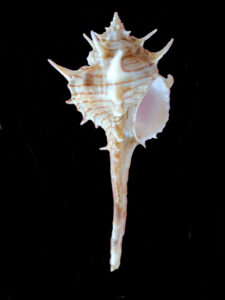
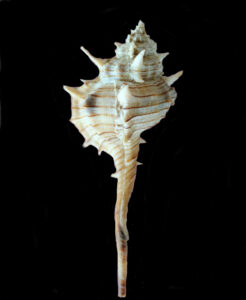 Long-spine Murex Shell, Vokesimurex recurvirostris. Size: 8.3 cm (2.5 inches) x 6.4 cm (2.5 inches). Shell collected from coastal waters within Bahía Concepción, Baja California Sur, March 2020. Collection and photograph courtesy of Barry Mastro, Escondido, California.
Long-spine Murex Shell, Vokesimurex recurvirostris. Size: 8.3 cm (2.5 inches) x 6.4 cm (2.5 inches). Shell collected from coastal waters within Bahía Concepción, Baja California Sur, March 2020. Collection and photograph courtesy of Barry Mastro, Escondido, California.
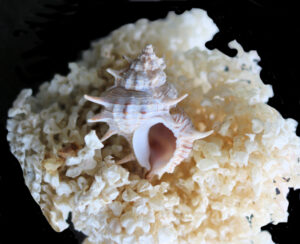 Long-spine Murex Shell, Vokesimurex recurvirostris. Collection from coastal waters within Bahía Concepción, Baja California Sur, March 2020. Collection and photograph courtesy of Barry Mastro, Escondido, California. Barry reports that he has encounters with several shells wrapped up in what appears to be “marine styrofoam.” The package is large and perhaps a half a cubic foot in volume with no individual organisms visible. Once the package is opened these shells are within completely intact and unbroken without the live snail.
Long-spine Murex Shell, Vokesimurex recurvirostris. Collection from coastal waters within Bahía Concepción, Baja California Sur, March 2020. Collection and photograph courtesy of Barry Mastro, Escondido, California. Barry reports that he has encounters with several shells wrapped up in what appears to be “marine styrofoam.” The package is large and perhaps a half a cubic foot in volume with no individual organisms visible. Once the package is opened these shells are within completely intact and unbroken without the live snail.
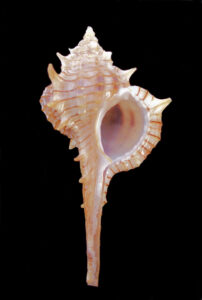
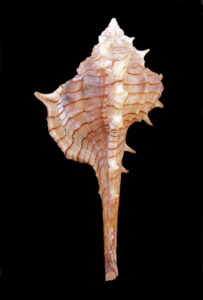 Long-spine Murex Shell, Vokesimurex recurvirostris. Size: 4.6 cm (1.8 inches) x 2.8 cm (1.1 inches). Shell provided by the commercial fishermen of the greater Los Cabos area, Baja California Sur, March 2016.
Long-spine Murex Shell, Vokesimurex recurvirostris. Size: 4.6 cm (1.8 inches) x 2.8 cm (1.1 inches). Shell provided by the commercial fishermen of the greater Los Cabos area, Baja California Sur, March 2016.
The Long-spine Murex, Vokesimurex recurvirostris (Broderip, 1833), is a gastropod mollusk that is a member of the Muricidae Family of Rock. They are also known as the Bent-beak Murex and the Curved-beak Murex and in Mexico as busano alacra’n. Their shells have a globose body with a moderate spire and very long canal. The exterior of the shall varies in color from cream to tan in color with many being marked with fine reddish lines that circle the body. Some specimens also have encircling brown bands, mostly visible on the interior. The Long-spine Murex can be easily confused with the Elena Murex Shell, Vokeimurex elenensis (more numerous spines along the siphon canal and outer lip). The Long-spine Murex Shells reach a maximum of 8.8 cm (3.5 inches) in length and 5.4 cm (2.1 inches) in height.
The Long-spine Murex resides on and within muddy and sand habitat from the intertidal zone to depths up to 76 m (250 feet). They range from Cedros Island, Baja California to Ecuador; they are found in the southern portions of the Sea of Cortez.
Synonyms include Murex nigriscens, Murex recurvirostris, and Murex recurvirostrus.